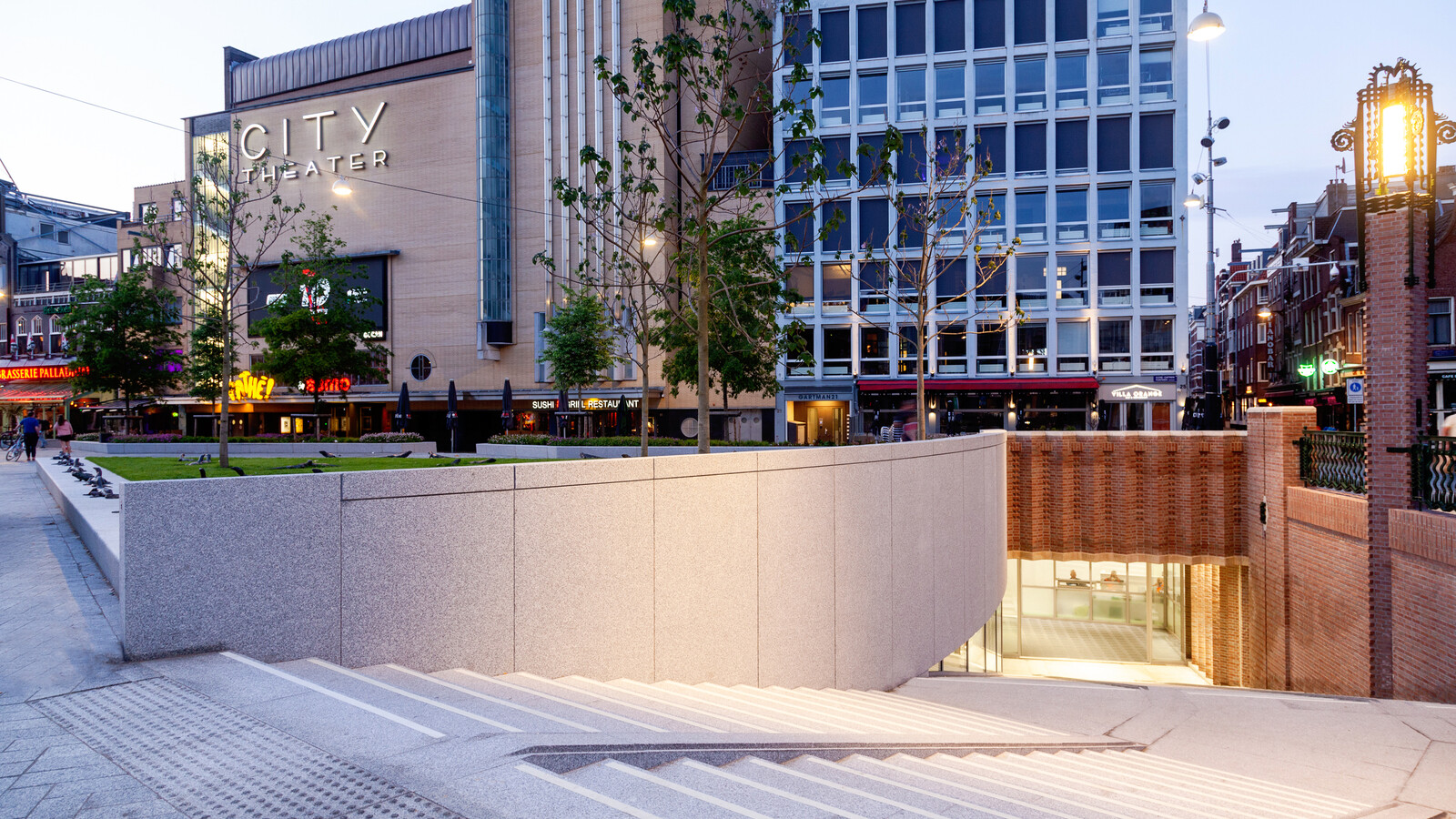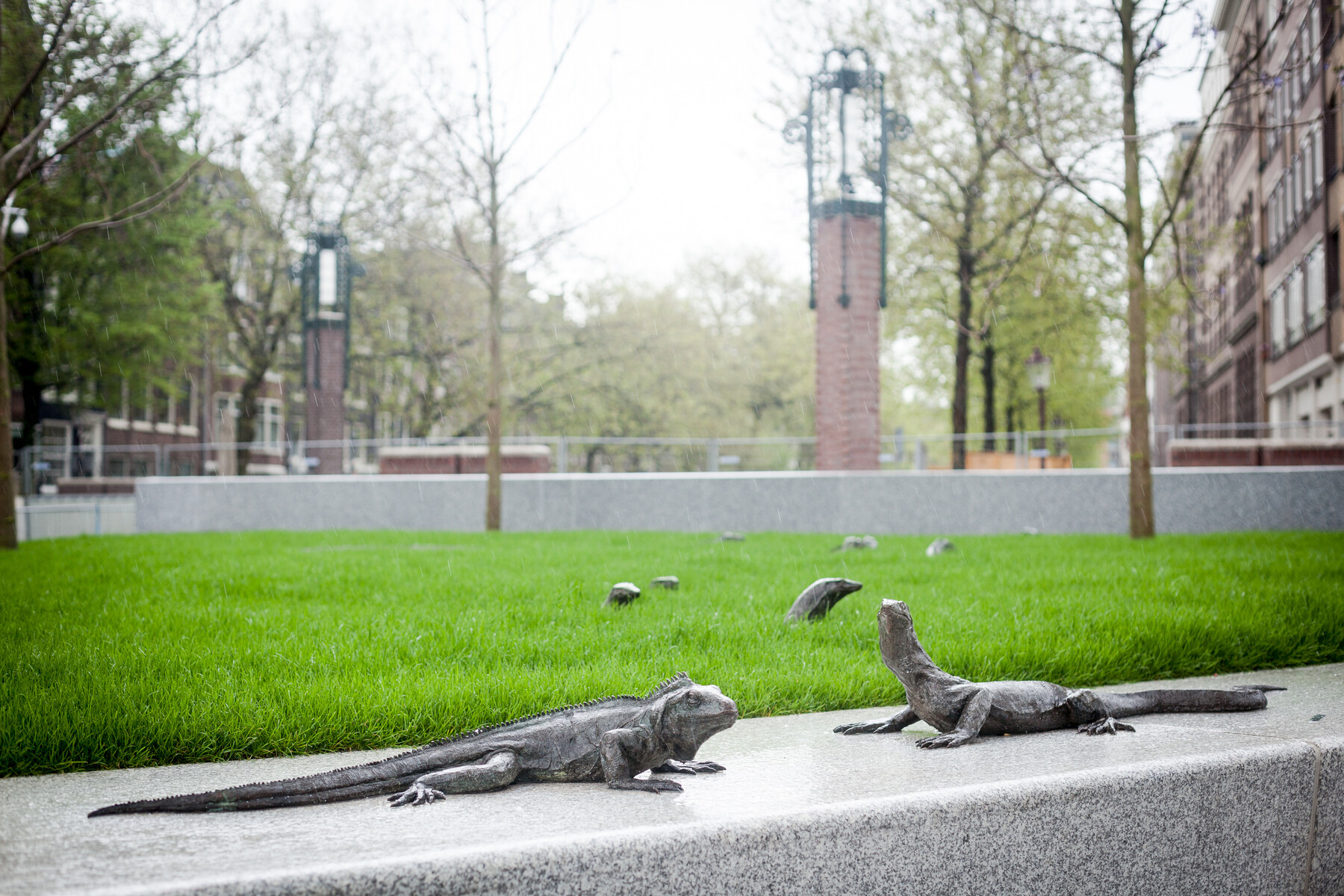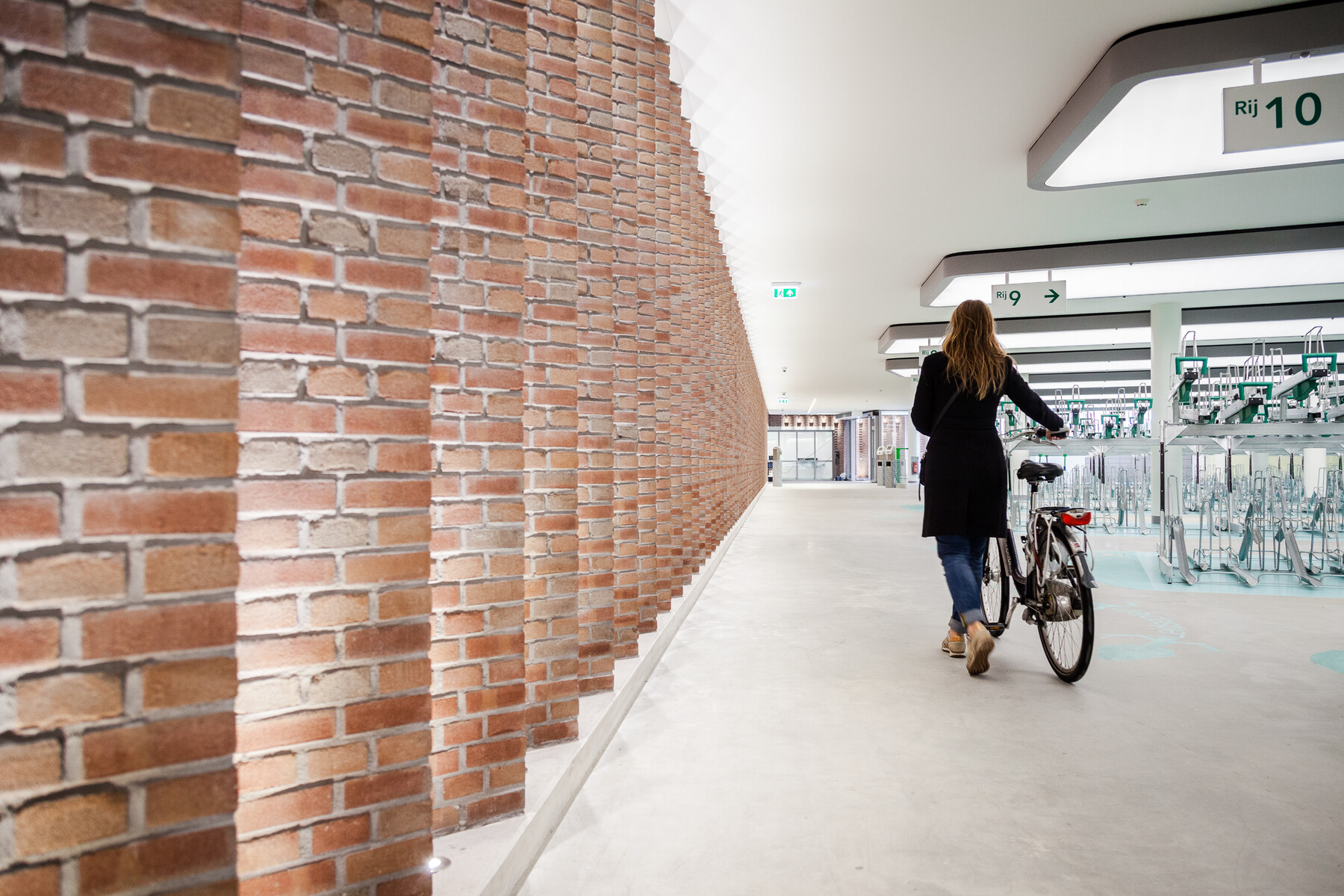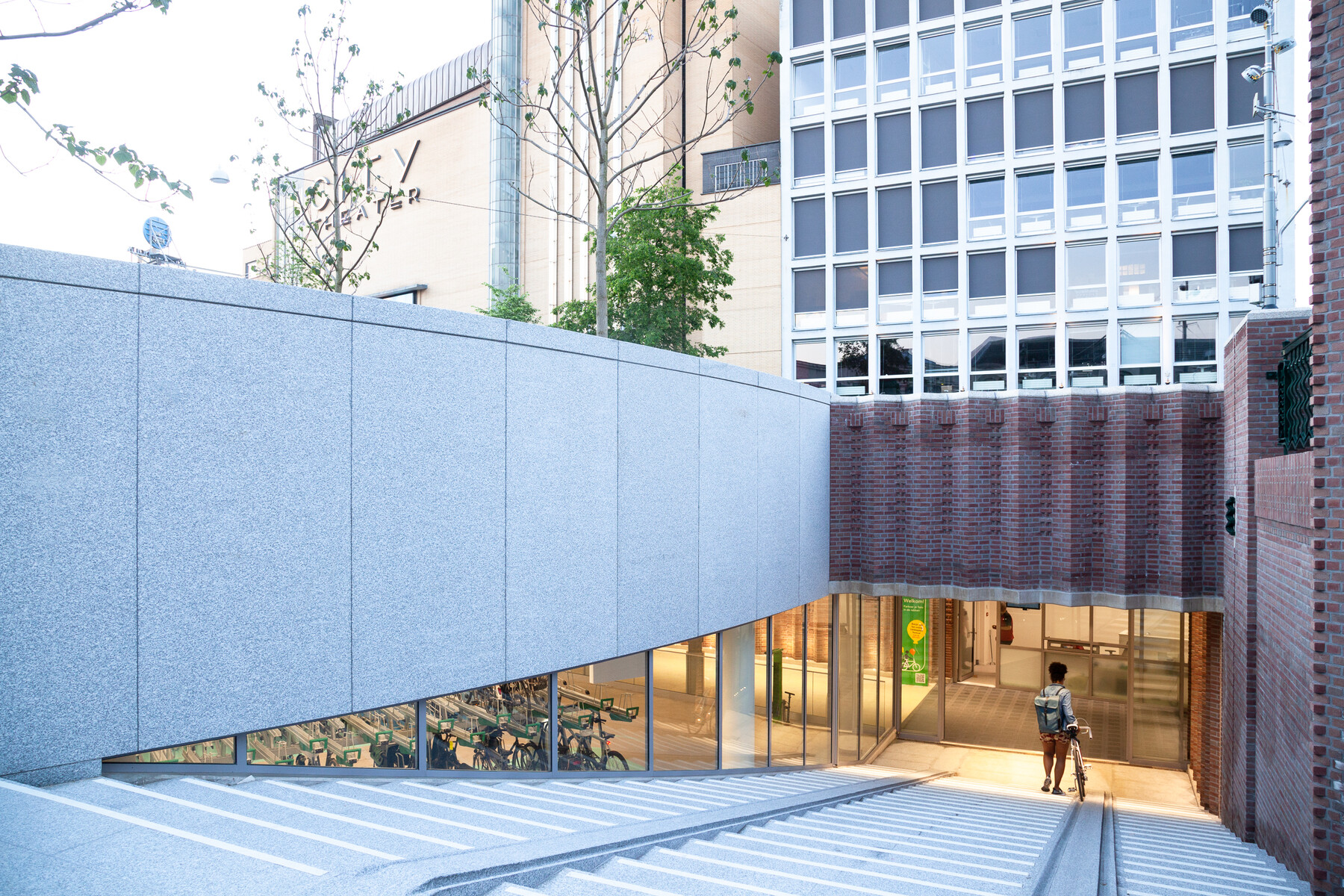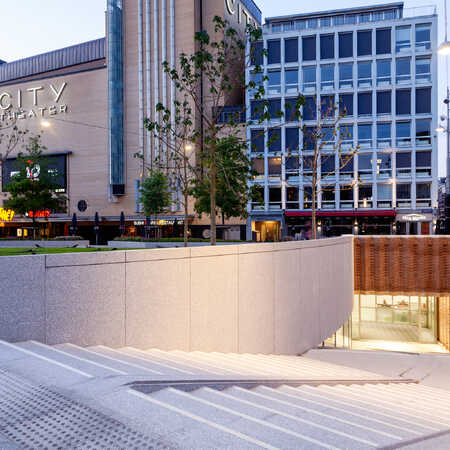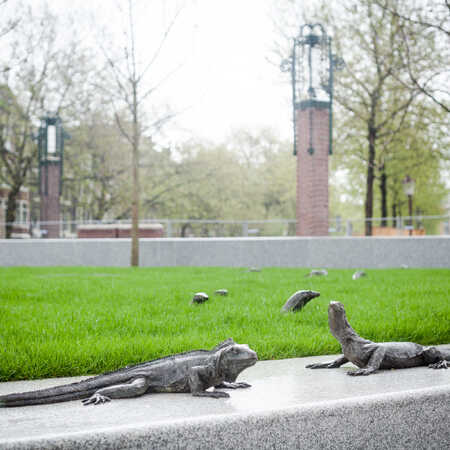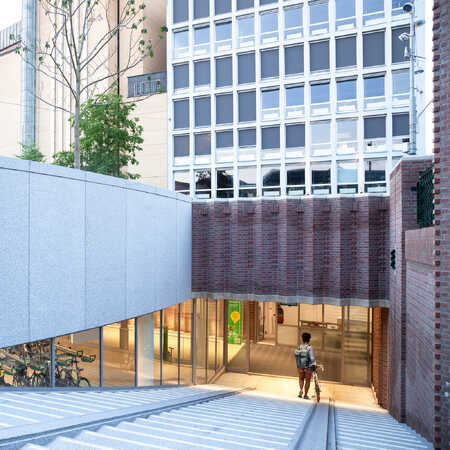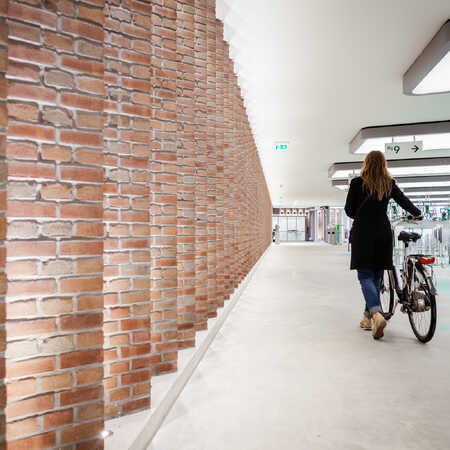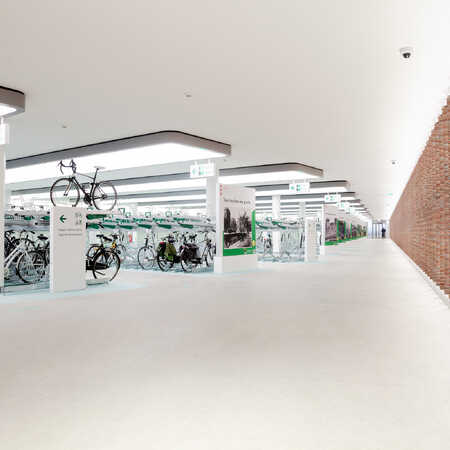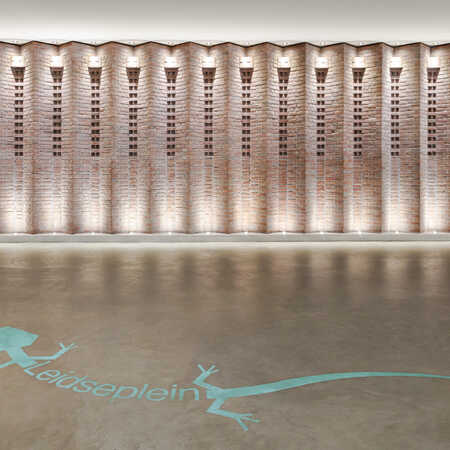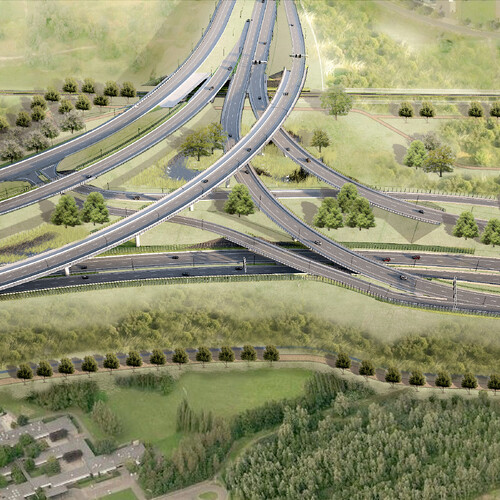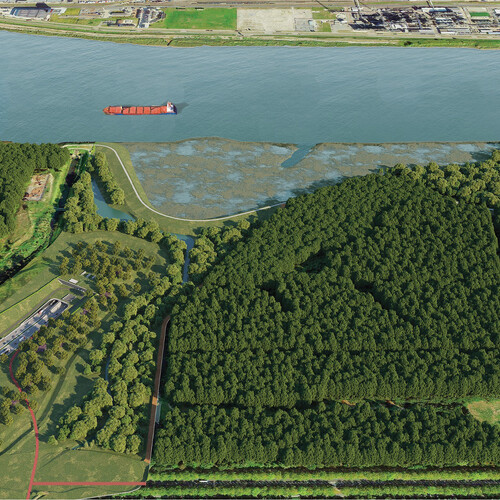Merged into the surroundings
The green is the original location for a public work of art that will be given a new appearance with the advent of the bicycle parking. The Blaauw Jan (Blue John) by Hans van Houwelingen was revealed in 1994. On the grass, between the bushes and on the low brick walls stood forty true to life bronze lizards: monitor lizards, iguanas and agamas. Symbols of supreme survival skills and resurrection and besides that beautiful dream creatures that enrich the city by day and night. The title ‘Blaauw Jan’ refers to an inn located at the Kloveniersburgwal just around the corner during the 17th and 18th centuries that had a courtyard housing a veritable zoo where one could admire lions, emus, African and Asian birds and reptiles.
